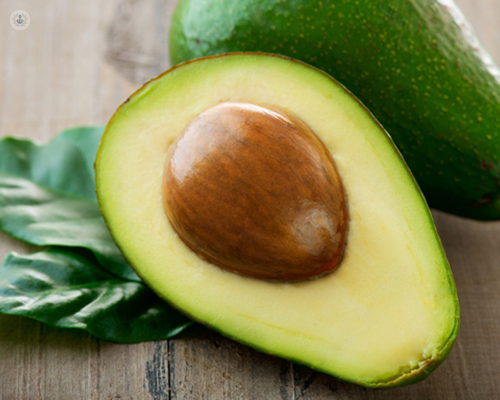Ketogenic diet
Dr Abbi Lulsegged - Endocrinology, diabetes & metabolism
Created on: 12-16-2014
Updated on: 09-27-2023
Edited by: Kate Forristal
What is the ketogenic diet?
The ketogenic diet is a low carb diet where the body produces small fuel modules in the liver called ketones, which are used as energy. Ketones are an alternative fuel for the body, used when the blood sugar (glucose) is in short supply. Through eating very few carbohydrates, moderate amounts of protein and high levels of natural fats, ketones are produced. They are produced in the liver from fat and used throughout the body as fuel.

How does the ketogenic diet work?
The entire body changes its fuel supply to run almost entirely on fat. The levels of insulin become very low, which enables fat burning to increase dramatically. The body is in a state of ketosis when it produces ketones.
What foods can be eaten on a ketogenic diet?
It is important to track the number of carbohydrates that are being consumed daily. Some people will find that they can eat 50g of carbohydrates and lose weight, whilst others stick to 20g or less a day. Typical foods to be consumed on the ketogenic diet include:
• Fish and seafood
• Cheese
• Natural fats such as avocado, grass-fed butter, coconut oil and olive oil
• Meat
• Eggs
• Vegetables that grow above the ground.
What foods are to be avoided on a ketogenic diet?
The main foods to avoid are those that contain a lot of sugar and starch. Foods high in carbohydrates such as bread, pasta, rice and potatoes should be avoided. Fruits should be avoided, although some fruits such as berries can be eaten in moderation. All processed foods should be cut out.
What are the benefits of the ketogenic diet?
- Weight loss – fat burning is vastly increased.
- Appetite control
- Constant energy and mental performance
- Control blood sugar and reverse type 2 diabetes – blood sugar levels are controlled, lowered and reduce the negative impact of high insulin levels.
- Improved health markers – improve cholesterol, blood sugar and insulin levels and blood pressure.
- Increased physical endurance – there is a constant access to all the energy of the fat stores. Top athletes follow the ketogenic diet for an increase in performance.
- Control epilepsy – the diet was originally intended as medical therapy for children with epilepsy since the 1920s.
- Reduce the risk of cancer - lowering carbohydrates reduces your levels of glucose, which is the fuel that feeds cancer cells.








